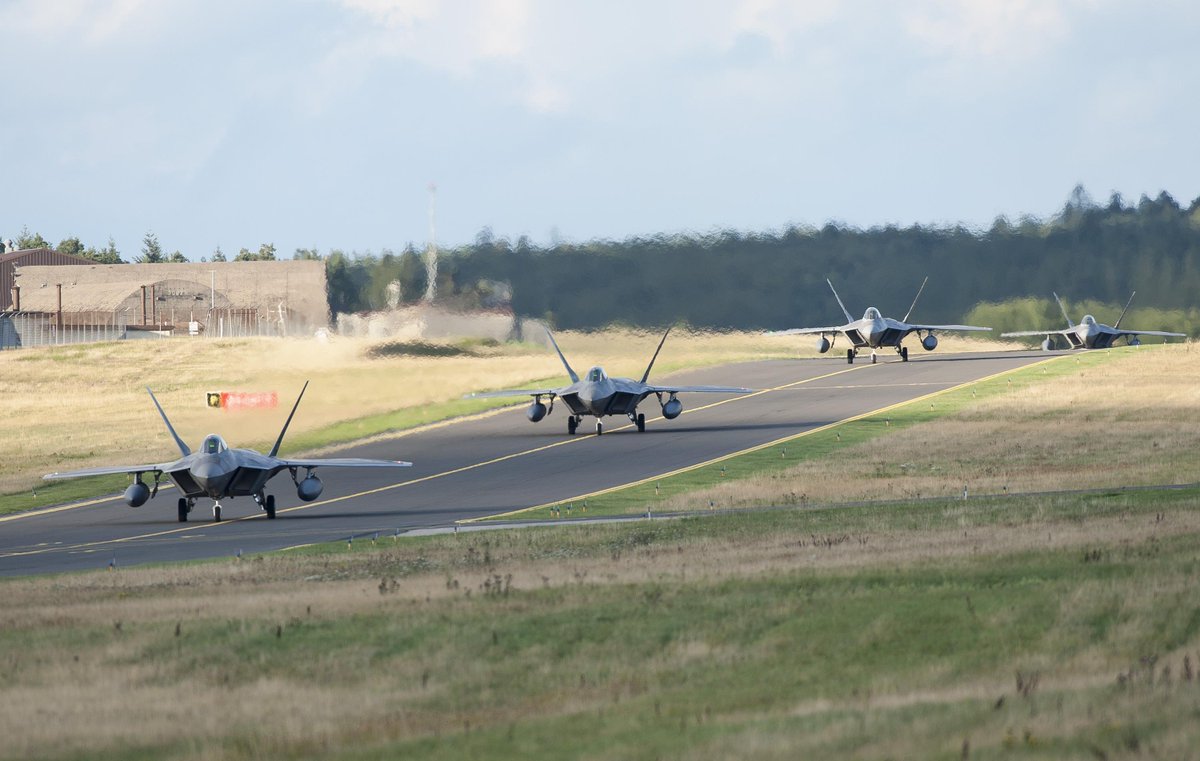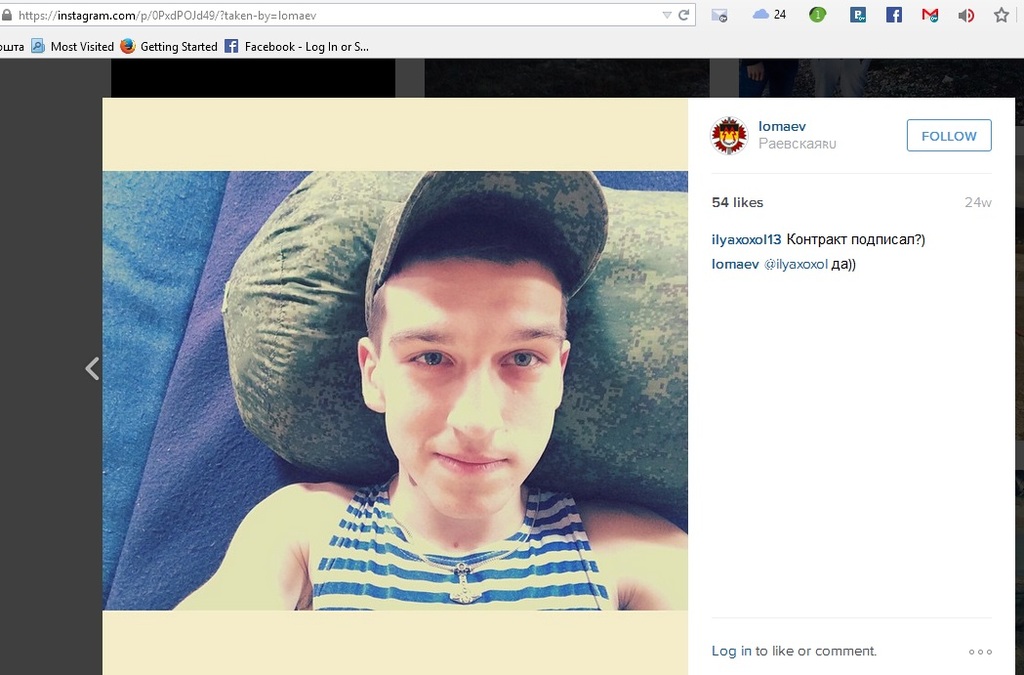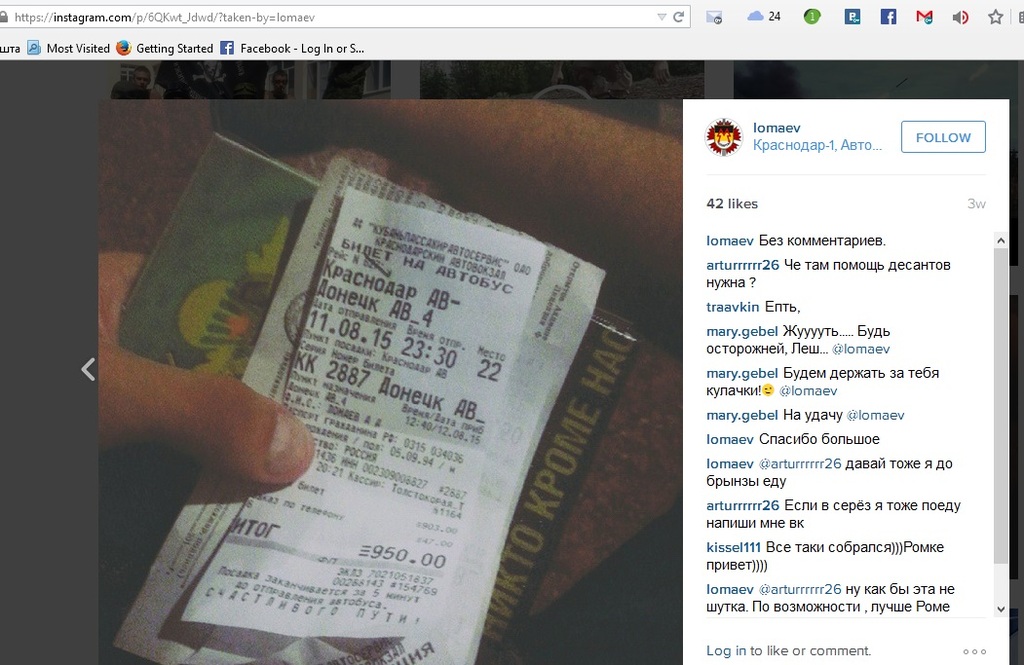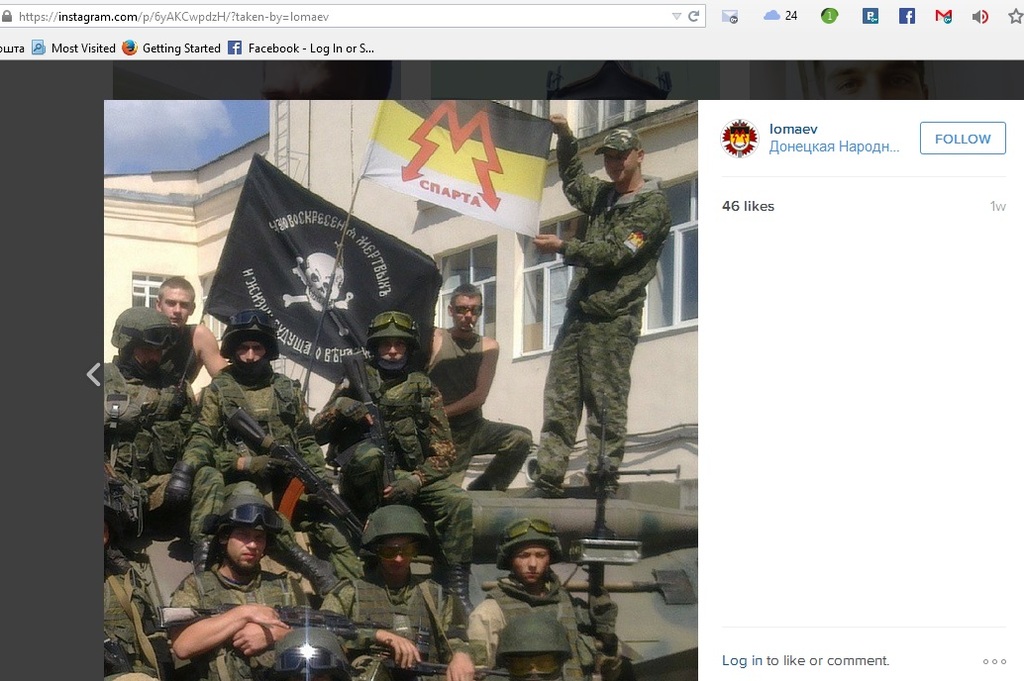Napetost v Ukrajini - Krimu
- Ustvarjalec teme darjan
- Začetni datum
Uporabljate neposodobljen brskalnik. Ta ali druga spletna stran morda ne bo prikazana pravilno.
Posodobite brskalnik ali uporabite alternativni brskalnik.
Posodobite brskalnik ali uporabite alternativni brskalnik.
Military Report of Novorossia
Citat:
Pro-Kiev artillery has been attempting to destroy a railroad haul connecting DPR with Ukraine. The Skotovskaya rail terminal is damaged. Train movements are temporary stopped. A real level of destruction is unknown.
From the direction of Avdeevvka, Ukrainian artillery shell Donetsk Airport and residential areas around it. The clashes are also going at Peski.
Od l. 1992 je na Krimu potekal festival Kazantip. 2-3 tedne v avgustu, 100 000 ljudi, velika reč.
V preteklosti so nastopali Carl Cox, Armin Van Buuren, Pendulum, Ricardo Villalobos, Tiesto, Skrillex, Benny Benassi, David Guetta, Ferry Corsten...
Lani so šli v Gruzijo, letos pa se je organizator vrnil na mesto zločina. Namesto, da bi bila oblast vesela, se je zgodilo tole
Zaplenili so jim 2x200kW generatorja in odklopili elektriko bližnji vasi, ki živi od festivala. Da ne bi kdo dobil kakih idej.
Rusijo prav malo briga za prebivalce, zanimajo jih samo vojaške baze. Čim manj zvedavih turistov, bolje za njih.
V preteklosti so nastopali Carl Cox, Armin Van Buuren, Pendulum, Ricardo Villalobos, Tiesto, Skrillex, Benny Benassi, David Guetta, Ferry Corsten...
Lani so šli v Gruzijo, letos pa se je organizator vrnil na mesto zločina. Namesto, da bi bila oblast vesela, se je zgodilo tole
Zaplenili so jim 2x200kW generatorja in odklopili elektriko bližnji vasi, ki živi od festivala. Da ne bi kdo dobil kakih idej.
Rusijo prav malo briga za prebivalce, zanimajo jih samo vojaške baze. Čim manj zvedavih turistov, bolje za njih.
I
Izbrisan uporabnik #488
I
Izbrisan uporabnik #488
I
Izbrisan uporabnik #488
100k gostov je številka, za katero bi izvajali satanistične rituale na precej bolj uveljavljenih destinacijah. Menda je glavni €, je.beš geopolitiko. Vsaj to sem poslušal prejšnje mesece.
V drugih novicah:
https://twitter.com/US_EUCOM/status/637313184043503616
https://twitter.com/Spangdahlem_AB/status/637337485794746368
V drugih novicah:
https://twitter.com/US_EUCOM/status/637313184043503616
Citat:
BREAKING NEWS: 4 F-22 #Raptors, 1 C-17 #Globemaster III & about 60 #Airmen arrived at @Spangdahlem_AB moments ago.

https://twitter.com/Spangdahlem_AB/status/637337485794746368
Citat:
#F22s are here! @HQUSAFEPA @usairforce @US_EUCOM @USAF_ACC @TYNDALL @NATO @DeptofDefense #Raptors#Spangdahlem#Eucom

Nemčija:
https://www.facebook.com/photo...100000155920645
Kdo je naci?
https://www.facebook.com/photo...100000155920645
Citat:
Brauner Aufmarsch heute in Heidenau mit Putins Symbolik: In den "heute"-Nachrichten waren Bilder einer Demo der Rechtsextremen zu sehen - und ganz vorne die Fahne der "Donezker Volksrepublik" - eines kriminellen Pseudo-Staats, den Moskaus Truppen und Helfer in den besetzten Gebieten der Ukraine ausgerufen haben. Unter den Demonstranten: bekannte Figuren der Freitaler Neonazi-Szene oder der Dresdner Pegida-Anwalt Jens Lorek. Bemerkenswerte Allianzen. Die Szene führt vor Augen: Putins deutsche Verteidiger a lá Schröder, Augstein und Eppler befinden sich in einem überaus unappetitlichem Umfeld.

Kdo je naci?
I
Izbrisan uporabnik #488
Rusi ter lokalci jokajo&stokajo Al Jazeeri kak problem je korupcija na Krimu, še iz časa janukovičevega režima. Nič čudnega, da so na celini izvedli revolucijo.
http://www.aljazeera.com/indep...1120645728.html
Ruse verjetno najbolj moti, da imajo staroselci že vpeljane korupcijske kanale in si res ne želijo novih klientov.
http://www.aljazeera.com/indep...1120645728.html
Citat:
A top Russian security official was very clear about the dangers Crimea is facing.
"Terrorism and corruption threaten Crimea," Nikolai Patrushev, head of the Security Council and a close ally of Russian President Vladimir Putin, reportedly said in the southern city of Sevastopol in early August, during a meeting with local officials.
The first threat, "terrorism", was an obvious reference to the unrelenting international demands to return the peninsula Russia annexed from Ukraine last year, an action the UN and Western countries do not recognise.
The second threat of corruption is much more ubiquitous in the lives of every Russian and Ukrainian.
Russia and Ukraine ranked 136 and 142, respectively, of a total 175 countries in the 2014 Corruption Perceptions Index by Berlin-based Transparency International.
For many here, the March 2014 annexation, which was hailed by Russian media as Crimea's return to "motherland", was like trading a bad situation for a worse one.
...
As decades-old supply routes from Ukraine were severed, prices on the peninsula skyrocketed, according to local residents.
Local businessmen complain about the difficulties they face when registering their companies under the Russian jurisdiction.
The transition has created fertile ground for corruption.
Patrushev told a government meeting that more than 60 officials were fired for corruption and some 700 corruption-related crimes have been identified in Crimea since the annexation.
...
Yanukovich's cronies started "corruption schemes, a system of kickbacks, nepotism and family connections", Grigory Ioffe, head of Crimea's Public Chamber, told Al Jazeera.
"It metastasised throughout Crimea's economy - and not just economy, businesses, ties outside Crimea - so much that within the year-and-a-half [of Russian rule] it is really difficult to get rid of that by just dismissing these people," Ioffe said.
...
"There was a resumption of the corrupt practises that existed here under the Ukrainian government, when the entire system was infected with corruption from top to bottom," Vladimir Garnachuk, a former Crimean lawmaker and head of the Clean Coast Crimea public organisation, told Al Jazeera.
He said local elites centred around Crimean Prime Minister Sergei Aksyonov resist the Kremlin's attempts to influence decision-making on the peninsula. They adopt laws that contradict Russia's federal legislation and scare off Russian investors, he purported.
"What's going on here is some sort of a separatist movement," Garnachuk said.
...
Yatsishina and dozens of Fiolent residents formed a group to fight land developers who seized a Soviet-era campground and installed metal fences blocking their access to the sea.
Despite a court ruling that deemed the land grab illegal, the developers are still there building luxurious houses, reinstalling the fences, posting guards, and cutting off water and electricity supply to the community, residents say.
After some 150 of them signed a petition to Putin and Crimea's general prosecutor's office, each received phone calls from city officials urging them to recall the petition.
"We don't doubt that these people have the power and means to cause trouble," Yatsishina said.
...
Three dozen white tents were pitched throughout Sevastopol in mid-August when Putin visited the peninsula. The tents were decorated with a round logo depicting Crimea surrounded by black, twisted arms. A sign below read: "Stop the pillaging of Sevastopol!"
Young activists dispatched by the city's parliament told passers-by they were collecting signatures under a petition to Putin to sack the city mayor and appoint a "literate, effective manager".
Some 22,000 Sevastopol residents, or some seven percent of the city's population, had signed the petition by late August.
Putin is widely seen as the good tsar and the supreme arbiter of disputes with the Russian state.
Ruse verjetno najbolj moti, da imajo staroselci že vpeljane korupcijske kanale in si res ne želijo novih klientov.
I
Izbrisan uporabnik #488
Citat:
Uporabnik Rosenthal pravi:
na istoku Ukrajine utihnula artiljerija
Mogoče pa zato

http://www.express.co.uk/news/world/602842/Russian-soldiers-fighting-pro-Assad-troops
Purgin je bil včeraj nogiran, kogar zanima več lahko prebere
http://euromaidanpress.com/2015/09/05/making-sense-of-the-dnr-coup/
http://www.interpretermag.com/...elatively-calm/
sam se bom osredotočil na postransko zgodbico. Med izrednim zasedanjem je parlament DNR varovala vojska, eden od vojakov je bil Leša Lomajev, ki je precej aktiven na družabnih omrežjih.
Na instagramu je objavljal celo med samim varovanjem

Na srednji sliki je skupaj z Edvardom Basurinom, pomočnikom obrambnega ministra DNR.
https://en.wikipedia.org/wiki/Eduard_Basurin
Glede na logo je del bataljona Šparta, ki mu poveljuje Arsenij Pavlov - Motorola.
https://en.wikipedia.org/wiki/"Sparta"_Battalion
Na VK ima handle lomaev1488
http://vk.com/lomaev1488
na twitterju whitepride_
https://twitter.com/whitepride_
Zagotovo naključno
 Instagram je postal preslaven in ga je zaprl (https://instagram.com/lomaev/), na skype je znan kot Cocaine_dream4.
Instagram je postal preslaven in ga je zaprl (https://instagram.com/lomaev/), na skype je znan kot Cocaine_dream4.
Njegova zgodba gre zadnje leto nakako tako. Vojaški rok je odslužil na začetku leta, v VDV (padalci/airborne).

https://twitter.com/whitepride_/status/563674274842832897
Pred 24imi tedni je podpisal pogodbo za poklicno služenje v ruski vojski.

Kontrakt podpisan?

Pred tremi tedni si je privoščil avtobusno vozovnico na relaciji Krasnodar (Rusija) - Donetsk (Ukrajina).

Od takrat je del DNR bataljona Šparta.

Dame in predvsem gospodje, tako izgleda hibridna vojna.
Kdo je naci?
http://euromaidanpress.com/2015/09/05/making-sense-of-the-dnr-coup/
http://www.interpretermag.com/...elatively-calm/
sam se bom osredotočil na postransko zgodbico. Med izrednim zasedanjem je parlament DNR varovala vojska, eden od vojakov je bil Leša Lomajev, ki je precej aktiven na družabnih omrežjih.
Na instagramu je objavljal celo med samim varovanjem

Na srednji sliki je skupaj z Edvardom Basurinom, pomočnikom obrambnega ministra DNR.
https://en.wikipedia.org/wiki/Eduard_Basurin
Glede na logo je del bataljona Šparta, ki mu poveljuje Arsenij Pavlov - Motorola.
https://en.wikipedia.org/wiki/"Sparta"_Battalion
Na VK ima handle lomaev1488
http://vk.com/lomaev1488
na twitterju whitepride_
https://twitter.com/whitepride_
Zagotovo naključno

Njegova zgodba gre zadnje leto nakako tako. Vojaški rok je odslužil na začetku leta, v VDV (padalci/airborne).

https://twitter.com/whitepride_/status/563674274842832897
Pred 24imi tedni je podpisal pogodbo za poklicno služenje v ruski vojski.

Kontrakt podpisan?

Pred tremi tedni si je privoščil avtobusno vozovnico na relaciji Krasnodar (Rusija) - Donetsk (Ukrajina).

Od takrat je del DNR bataljona Šparta.

Dame in predvsem gospodje, tako izgleda hibridna vojna.
Kdo je naci?



